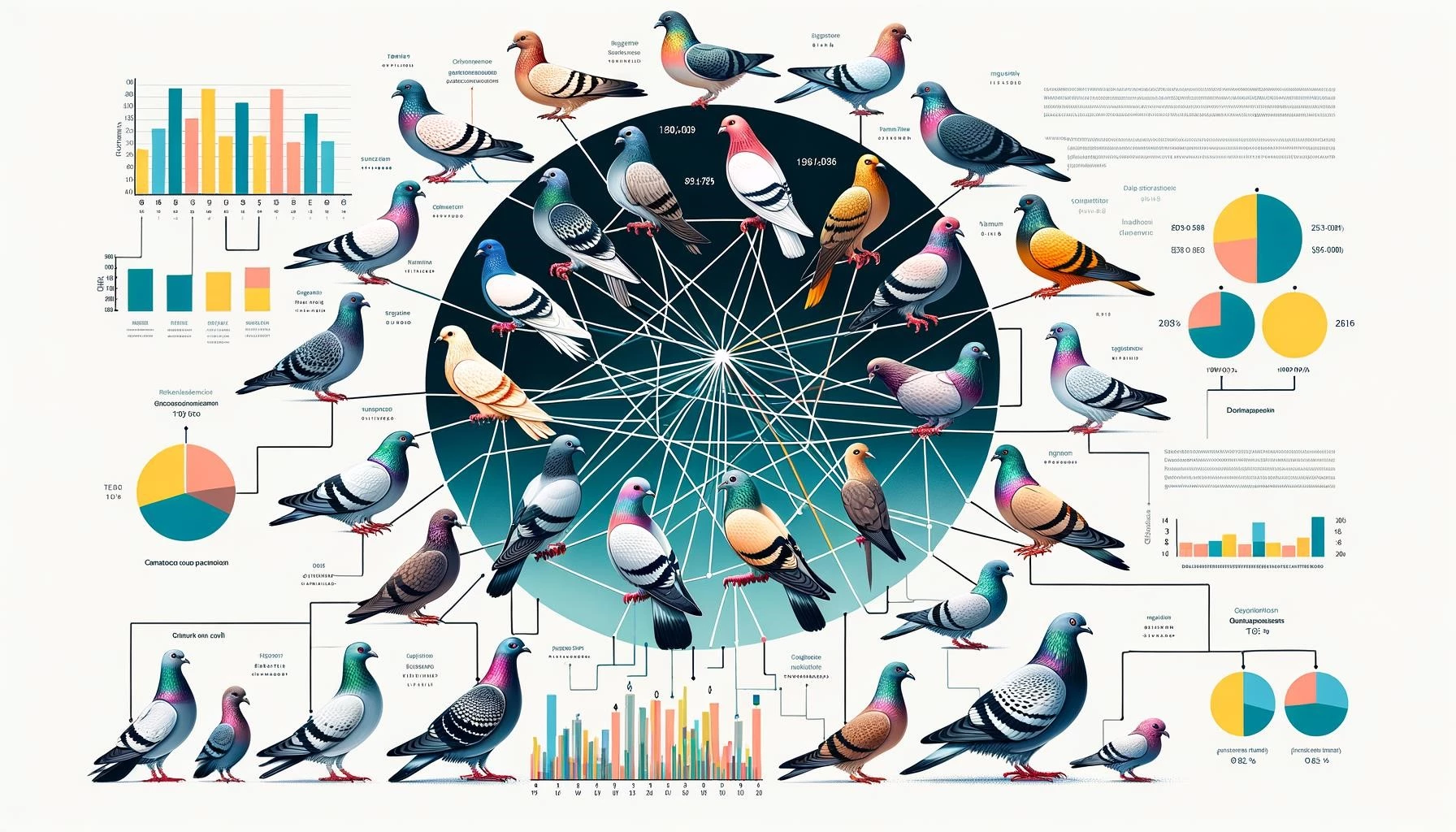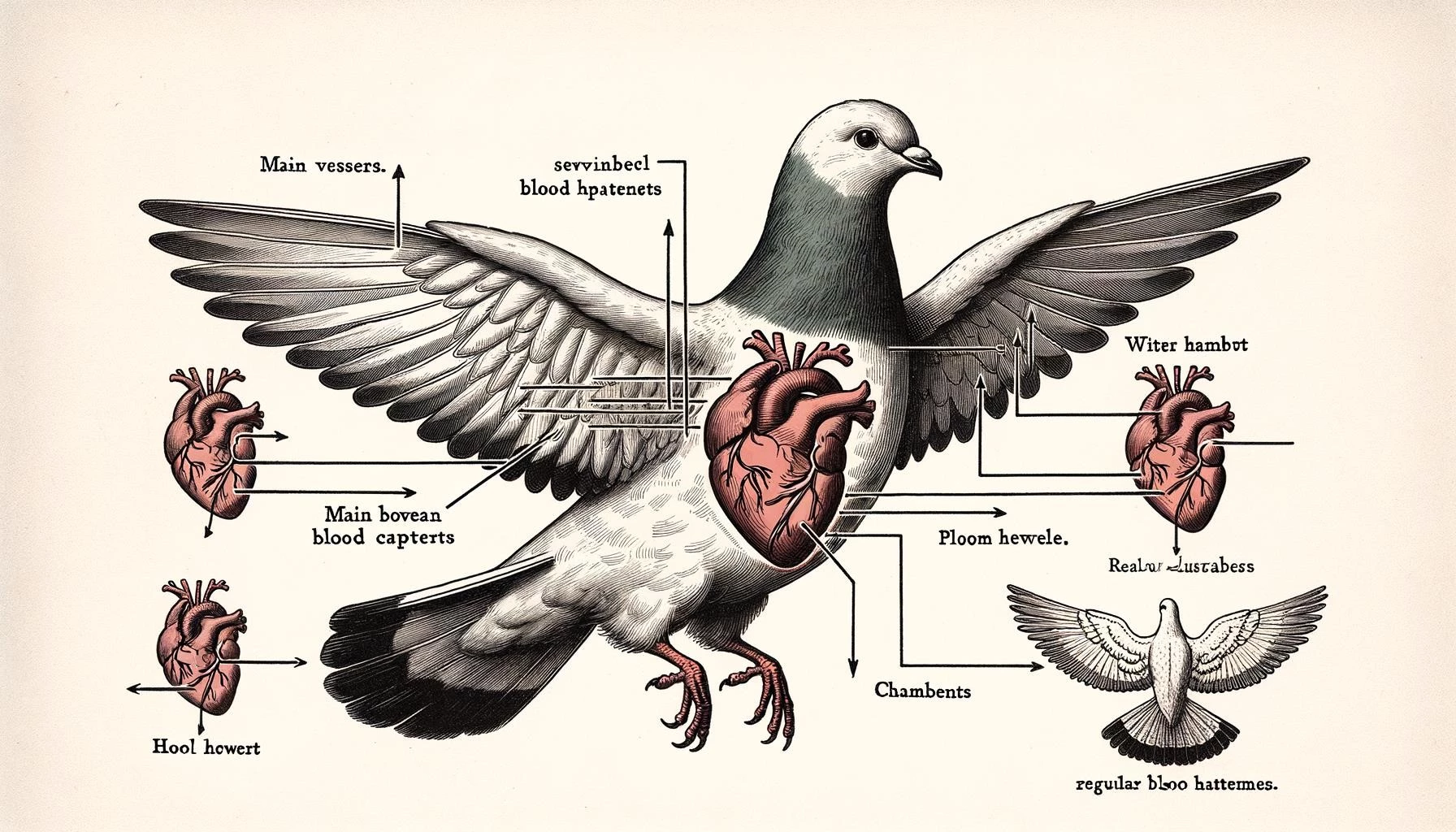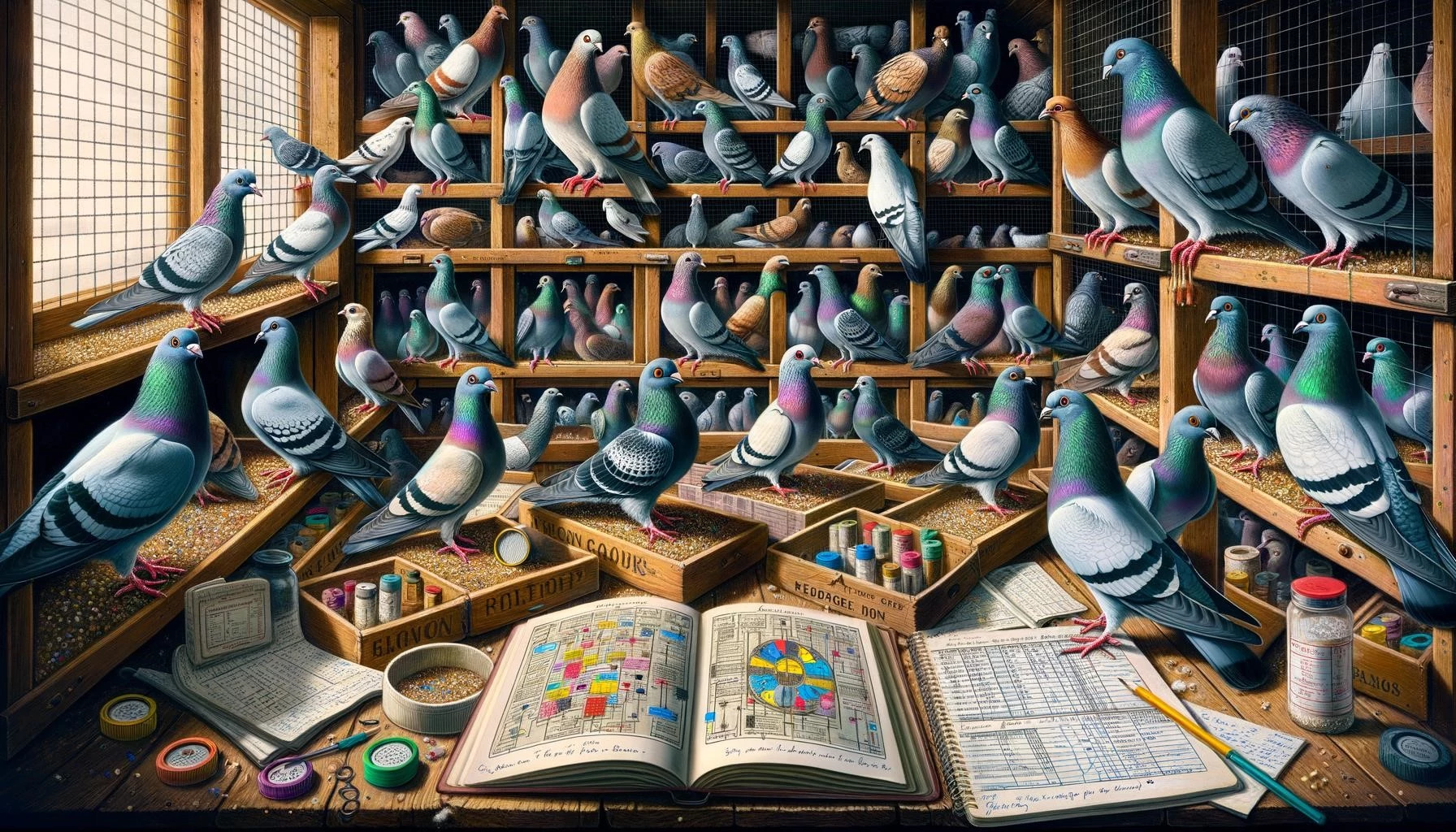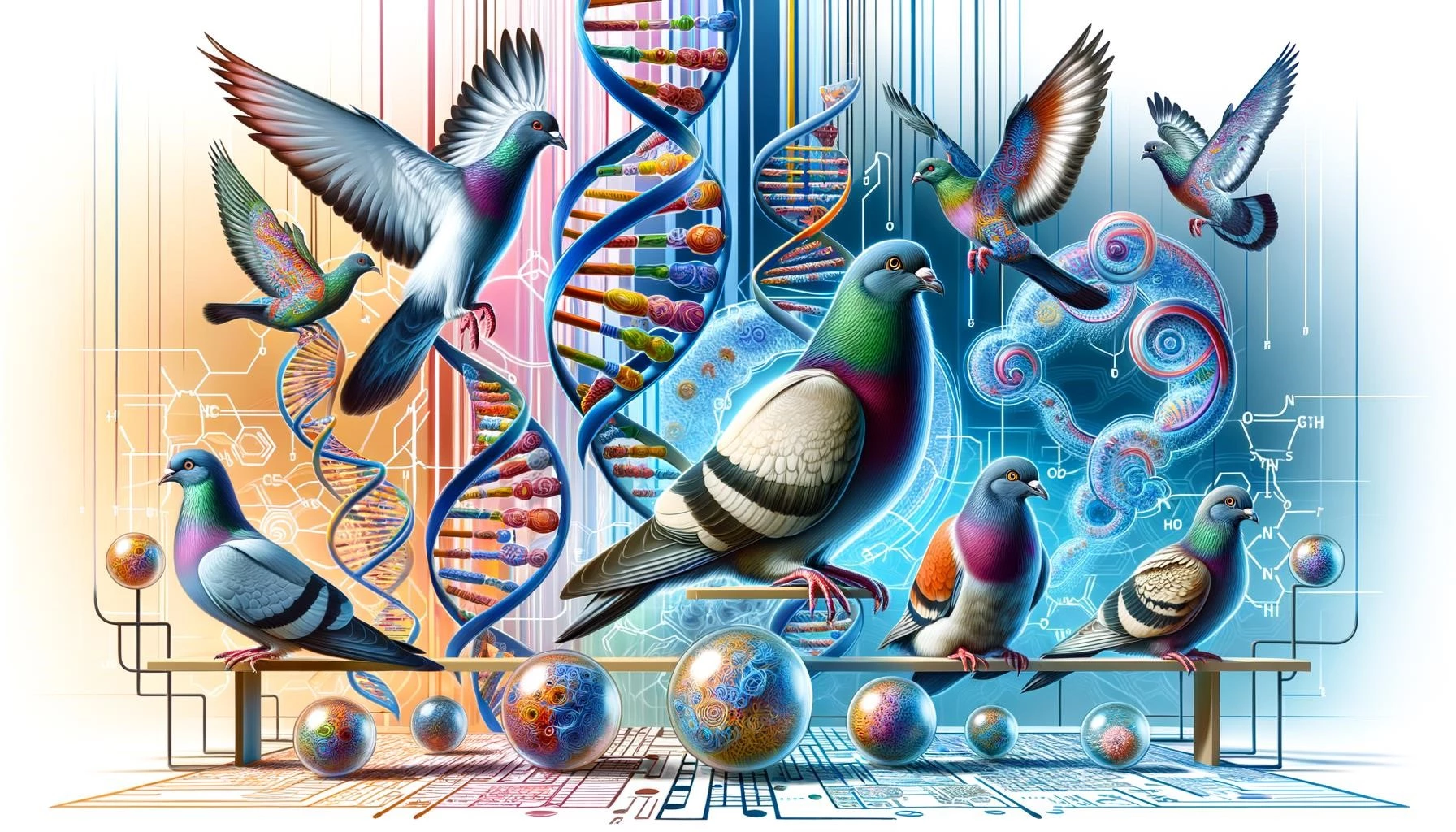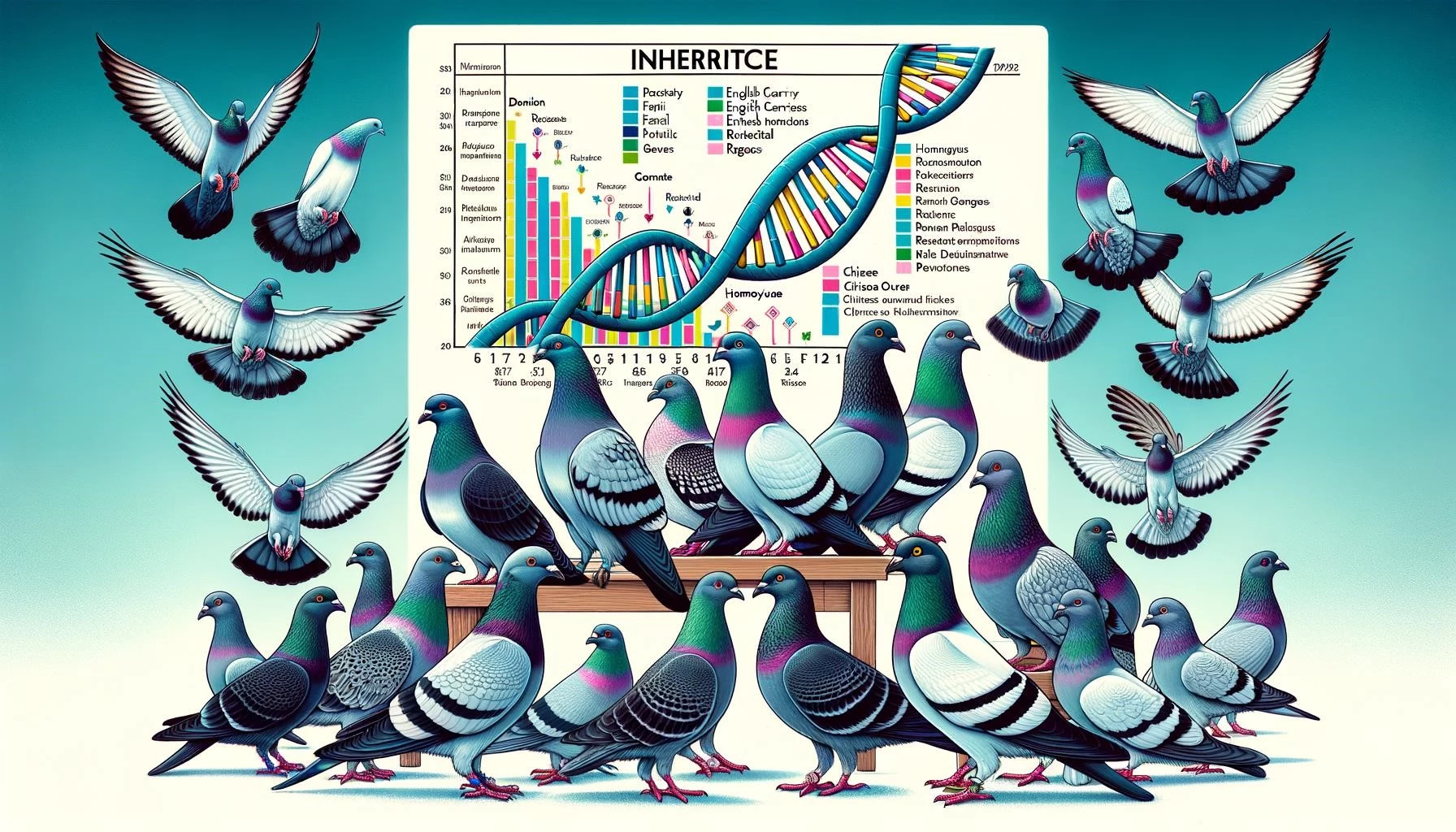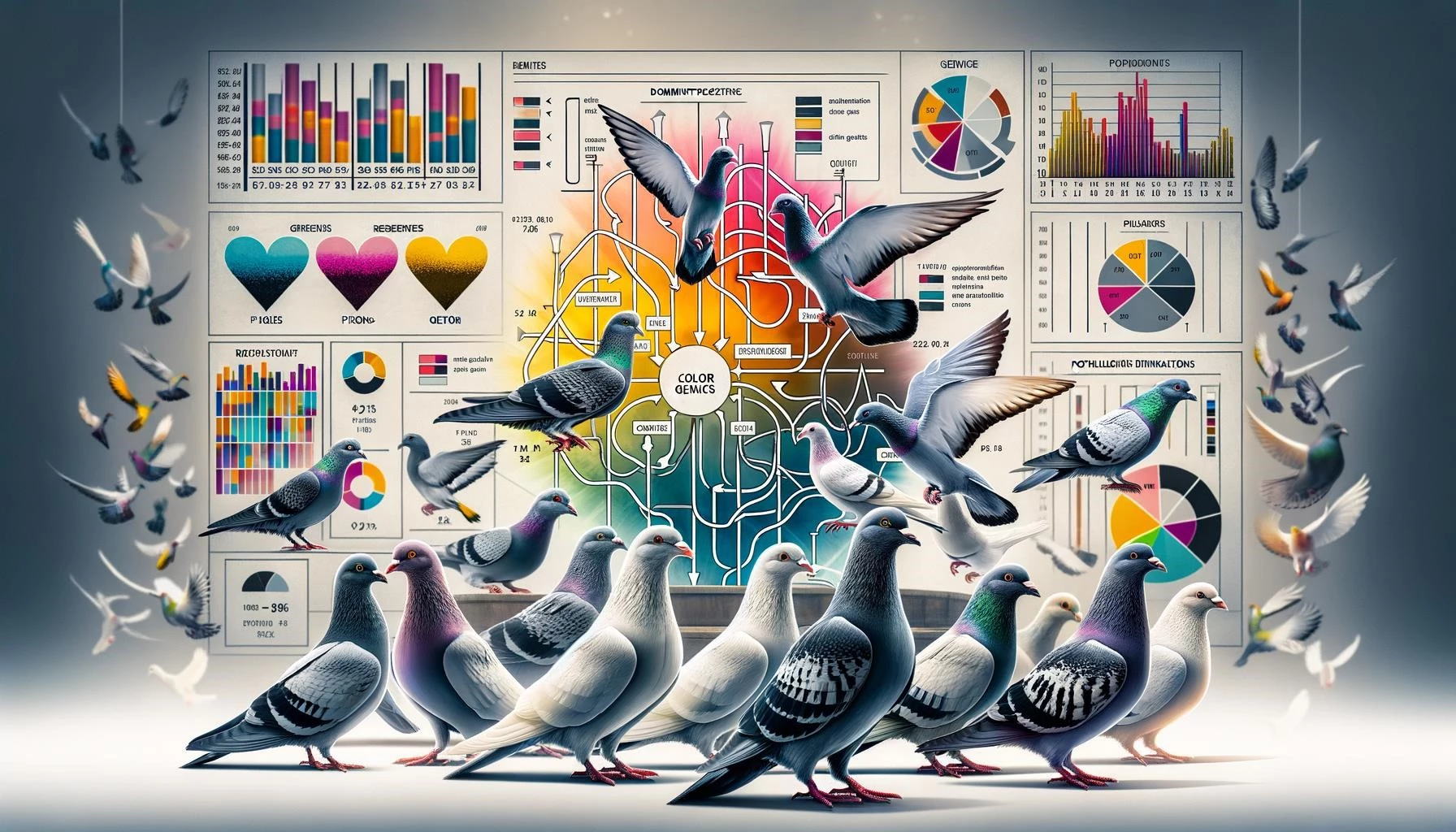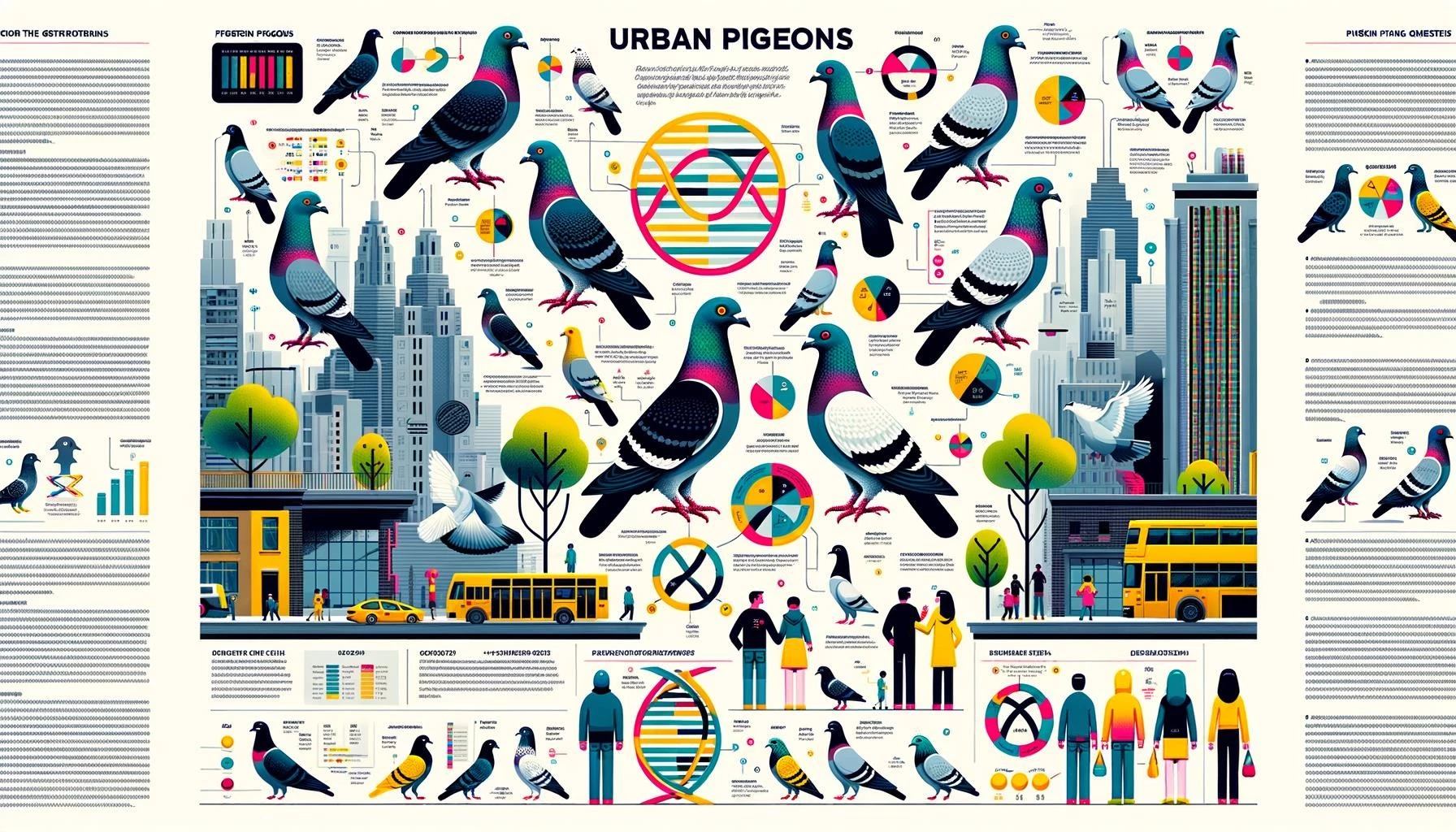Exploring the colorful world of pigeon genetics unveils the fascinating interplay between heredity and breeding practices. As we delve into the understanding of how genetic traits like color, pattern, and behavior are passed on in pigeons, we’ll also discover how breeders manipulate these elements to enhance their flocks. Notably, the longevity and health of these birds are entwined within this genetic web, which is impacted by both desirable attributes and potential genetic disorders.
Key Takeaways
- Genetics play a significant role in pigeon breeding, impacting traits such as color, pattern, and behavior.
- Breeders utilize various breeding techniques, including line-breeding, cross-breeding, and inbreeding, to achieve desired traits in pigeons.
- Pigeon genetics involve the inheritance of traits and the presence of genetic disorders, which can affect the lifespan and performance of the birds.
Understanding Pigeon Genetics
Pigeon genetics refers to the study of how traits are inherited and passed down from generation to generation in pigeons. These traits can include physical characteristics, such as color and pattern, as well as behavioral traits. Understanding pigeon genetics is crucial for breeders who aim to produce pigeons with specific traits and improve the overall quality of their flock.
Genetics plays a significant role in determining the color of pigeons. Pigeons come in a wide range of colors, including white, black, blue, and red. The color of a pigeon is governed by specific genes and can be influenced by a combination of genetic factors and environmental factors.
In addition to color, other factors such as patterns and modifiers also contribute to the diversity of pigeon phenotypes. Pigeon breeders can leverage their understanding of these genetic factors to selectively mate pigeons and produce offspring with desired traits.
Breeding Techniques
Pigeon breeders employ various breeding techniques to achieve specific goals in their breeding programs. These techniques include:
- Line-breeding: Line-breeding involves breeding pigeons that are closely related, such as parent to offspring or sibling to sibling. This technique allows breeders to reinforce desired traits and maintain genetic consistency within a specific line of pigeons.
- Cross-breeding: Cross-breeding involves mating pigeons from different lines or breeds to introduce new genetic diversity and potentially improve certain traits. Breeders carefully select pigeons with complementary traits to achieve specific goals through cross-breeding.
- Inbreeding: Inbreeding involves mating closely related pigeons, such as full siblings, to concentrate desirable traits. While inbreeding can lead to the fixation of desired traits, it also increases the risk of inheriting deleterious genetic disorders. Proper management and selection are crucial when practicing inbreeding.
Each breeding technique has its advantages and disadvantages, and breeders must carefully consider their goals and the long-term effects of the chosen technique.
Genetic Factors and Pigeon Lifespan
Genetics plays a significant role in determining the lifespan of pigeons. Inherited traits and genetic disorders can influence the health and longevity of pigeons. Certain inherited traits, such as robust immune systems or efficient metabolism, can contribute to the longevity of pigeons.
However, genetic disorders can also have negative impacts on pigeon health and lifespan. Breeders must be cautious about breeding pigeons with known genetic disorders to prevent passing these disorders onto future generations. By identifying carriers of undesirable alleles, breeders can implement screening measures and make informed breeding decisions to avoid producing offspring with detrimental genetic disorders.
Selective breeding, which focuses on producing pigeons with desirable traits, can also contribute to improving the overall health and lifespan of pigeons. By selectively breeding pigeons with optimal traits and genetic backgrounds, breeders can potentially enhance the overall vigor and longevity of their flock.
In conclusion, pigeon genetics and breeding are interconnected processes that directly impact the physical traits, behavior, and health of pigeons. Breeders who understand the principles of pigeon genetics can make informed decisions to produce pigeons with desired traits and improve the overall quality of their flocks.

